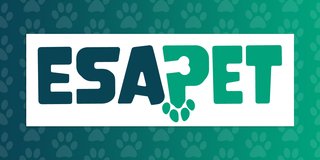Unlocking the strength of Emotional Support Animal Letters: Helpful tips for Understanding and Obtaining ESA Certification

Recently, the concept of Emotional Support Animals (ESAs) has gained significant attention and recognition. These animals play a crucial role in providing comfort, companionship, and therapeutic good things about individuals struggling with various mental health issues. For many, obtaining an emotional support animal letter is paramount to unlocking the opportunity benefits of ESA ownership. On this guide, we explore the significance of ESA letters, the entire process of obtaining one, and the rights and responsibilities that are included with ESA ownership.

Understanding Emotional Support Animals:
Emotional Support Animals won't be the same as service animals or therapy animals, although they serve similar but distinct purposes. Unlike service animals, that are specially taught to perform tasks for individuals with disabilities, ESAs provide emotional support and companionship to the people with mental health issues. These conditions can include anxiety, depression, PTSD, as well as other psychological disorders.
The Importance of an Emotional Support Animal Letter:
An Emotional Support Animal Letter, also referred to as an ESA letter or prescription, can be a document from a licensed mental doctor. This letter serves as official documentation that verifies those need for an ESA to alleviate symptoms of their mental health issue. It is important to note that only licensed mental medical researchers, such as psychiatrists, psychologists, licensed clinical social workers, or therapists, can offer legitimate ESA letters.
Obtaining an ESA Letter:
The entire process of obtaining an ESA letter typically requires the following steps:
Consultation having a Mental Health Professional: The first step is always to schedule a consultation having a licensed mental medical expert. During this consultation, the person discusses their mental health problem and the potential benefits of having an ESA.
Assessment and Evaluation: The mental health professional conducts an examination to determine if the individual meets the factors for an ESA. This assessment may involve discussing the individual's symptoms, treatment history, and the potential advantages of having an ESA in their therapy plan.
Issuance from the ESA Letter: In the event the mental medical expert determines an ESA would be good for the individual's mental health, they are going to issue an ESA letter. This letter typically includes the professional's contact info, details about those mental health issue, and a statement confirming the requirement for an ESA.
Renewal and Follow-Up: ESA letters are typically valid for just one year, then they may have to be renewed. Mental health care professionals may require follow-up appointments to evaluate the individual's progress and find out if continued ESA support is necessary.
Rights and Required ESA Owners:
Once an individual obtains an ESA letter, they are entitled to certain rights and accommodations under federal law, including:
Housing: The Fair Housing Act (FHA) allows people with ESAs to live with their animals in housing that has a "no pets" policy, including apartments and rental properties. Landlords are required to make reasonable accommodations for ESA owners.
Airline travel: The Air Carrier Access Act (ACAA) allows people who have ESAs to travel with their animals within the cabin of your aircraft, totally free. Airlines might require documentation, including an ESA letter, to approve the animal for travel.
Public Accommodations: While ESAs aren't granted the same access rights as service animals in public areas, some establishments may allow ESAs on a case-by-case basis. However, it is important to respect the policies of individual businesses and establishments.
In addition to these rights come certain responsibilities for ESA owners. Such as:
Proper Care and Training: ESA owners have the effect of the health, well-being, and behavior of the animals. It is crucial to ensure that the ESA receives proper veterinary care, nutrition, and training some thing appropriately in a variety of environments.
Respect for some individuals: While ESAs provide valuable support for their owners, it is essential to respect the rights and boundaries of others. Including ensuring that the ESA doesn't cause disturbances or pose risks to other people in housing, transportation, or public settings.
To conclude:
Emotional Support Animal Letters function as a crucial tool for individuals seeking support for his or her mental health conditions. By obtaining an ESA letter from a licensed mental doctor, individuals can access the benefits of ESA ownership, including housing and travel accommodations. However, it is very important understand the rights and responsibilities that come with ESA ownership and to ensure that ESAs receive good care and training. With the appropriate support and resources, ESAs can produce a meaningful difference in the lives of these struggling with mental health issues.
